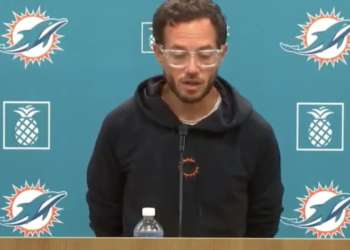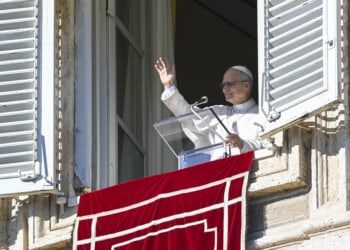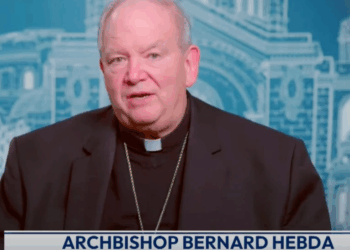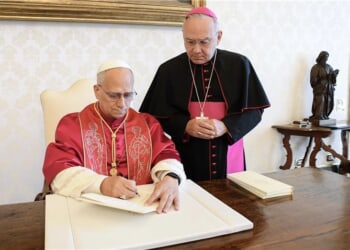You may have missed it among the recent wild headlines of Democrats wishing death on Republicans, but the Supreme Court missed an opportunity to cement the closed primary system that keeps outsiders from voting in party primaries, with huge ramifications for our republic’s future.
Although the 11th Circuit Court correctly dismissed Polelle v. Byrd, the justices announced on Oct. 14 that they declined to hear the case’s challenge to the closed primary’s constitutionality. If the court had taken it up, they could’ve solidified this important aspect of American democracy, which filters quality candidates into general elections.
The case centered on whether 3.4 million registered independent voters were robbed of their constitutional rights under the First and Fourteenth Amendments by being barred from casting a ballot in Florida’s closed primary elections.
The closed primary system actually strengthens the republic because it motivates informed and passionate voters to turn out during the general election.
Petitioner Michael Polelle, a retired attorney, sued the Florida Secretary of State under the argument that they were. He was joined by former Democrat presidential candidate Andrew Yang’s Forward Party, the Independent Voter Project, and Open Primaries, all of which filed supporting amicus briefs arguing that closed primaries treat non-affiliated or third-party voters as second-class citizens. (RELATED: Five Quick Things: The Party of Vote Fraud)
From a constitutional standpoint, this is ridiculous. Anyone can register with whichever political party they choose and vote in that party’s closed primaries. The petitioners made the argument that people shouldn’t be forced to join private clubs to vote in primary elections.
If successful, this would have diluted the very reason for having partisan primaries in the first place.
Political Parties Exist for a Reason
Closed primaries aren’t just constitutional. They’re the gold standard for picking candidates who can withstand the general election. They discriminate — by design — against the ideologically uncommitted, and that’s precisely why they work.
Political parties exist to advance ideas, not host auditions for “Most Likeable Candidate.” The First Amendment protects freedom of association, which means they don’t have to let outsiders crash the party. We see — and accept — this in every other part of our lives. PETA doesn’t let barbecue pitmasters pick its leadership team, the Yankees don’t let the Red Sox make their draft picks, and churches don’t let non-Christians become members. Why would party primaries be any different?
Most “independents” aren’t actually independent, anyway. A 2007 Washington Post study found that just 18 percent of independents were “quintessential swing voters.” Fast forward to 2025, and a CNN poll last month found that this group no longer exists. (RELATED: Ensuring Greater Trust in Mail-in Voting)
America’s “independents” are usually straight-ticket partisans who flatter themselves as being “independent-minded.” Many are self-styled centrists who just want the stock market to hum. Others have checked out of politics altogether. Forcing parties to let these folks vote in their primaries isn’t democratic; it’s an invitation to electoral sabotage.
Before the 1970s, when parties chose nominees in the proverbial smoke-filled rooms, nominees were typically chosen by their party’s most politically active members. Although undemocratic by modern standards, these 19th and 20th-century conventions produced great statesmen like Abraham Lincoln and Dwight Eisenhower.
We don’t typically nominate presidents that way anymore (although the Virginia GOP did nominate Governor Glenn Youngkin through its 2021 convention). Yet the closed primary we use in its place is like an extra-large convention in which every Republican can participate. Unlike the conventions of old, however, the closed primary gives insurgent candidates — think Donald Trump — a shot at shaking up a sleepy establishment without being drowned out by the nonaligned who treat politics like a popularity contest. Or worse, sabotaged by Democratic voters crossing over to meddle in the GOP primary.
Closed Primaries Produce Better Candidates
Diversity of thought and healthy division strengthen democracy. Andrew Yang’s bland form of technocratic consensus has stagnated it.
America has never been a nation of political junkies — and that’s fine. Whether turnout is high or low in any given election has little bearing on the health of our democracy, and we should reject the Left’s calls for sweeping policy reforms when things don’t break their way. Is the primary system that’s worked for generations, in some places for a century, suddenly undemocratic? What about the convention system before it that worked for 150 years? (RELATED: The DOJ’s Lawsuit Against Maine and Oregon: A Win for Election Security)
The closed primary system actually strengthens the republic because it motivates informed and passionate voters to turn out during the general election. Committed partisans understand that the slightest scandal can sink their party in the general election and so balance ideological purity with electability. Although there are exceptions, this intense scrutiny by active party voters tends to reward sharper candidates who represent the majority of their party.
Many Americans who don’t register with either party are non-partisan-in-name-only, non-ideological, or disillusioned. Allowing these spoilers, centrists, and cranks to sabotage partisan primaries would produce bland nominees who could move to the final round with a plurality of their party’s voters rather than a majority. This would discourage the most informed and committed citizens from turning out in the general election.
The Polelle case offered the Supreme Court the ability to declare once and for all the constitutionality of the closed primary. It’s unfortunate they declined the opportunity. From a policy standpoint, weakening the partisan nature of partisan primaries would result in far more incompetent, corrupt, and unpopular candidates winning elections. Closed primaries are the first line of defense against mob rule by allowing committed partisans and ideologues to provide much-needed quality control in general elections. And we may even see higher election turnout with real choices on the ballot to boot.
READ MORE from Jacob Grandstaff:
It’s Time to End Universities’ Foreign Tuition Dependence
Don’t Underestimate Mamdani’s Ability to Woo Trump Voters With a Populist-Left Agenda
Republicans, Go on Offense Against the National Popular Vote — Now!
Jacob Grandstaff is an investigative researcher for Restoration News.

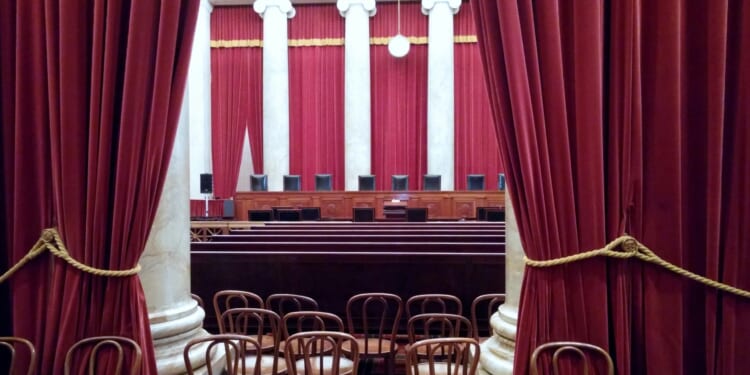






![Florida Officer Shot Twice in the Face During Service Call; Suspect Killed [WATCH]](https://www.right2024.com/wp-content/uploads/2025/12/Inmate-Escapes-Atlanta-Hospital-After-Suicide-Attempt-Steals-SUV-Handgun-350x250.jpg)
![Keith Ellison Caught Promising to Fight State Agencies for Somali Fraudsters [WATCH]](https://www.right2024.com/wp-content/uploads/2026/01/Keith-Ellison-Caught-Promising-to-Fight-State-Agencies-for-Somali-350x250.jpg)
